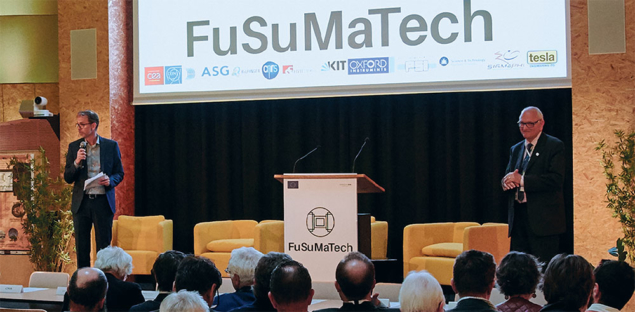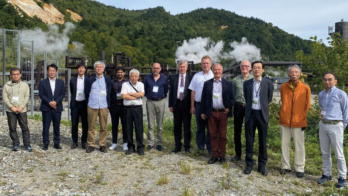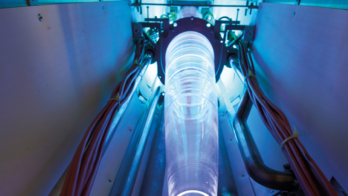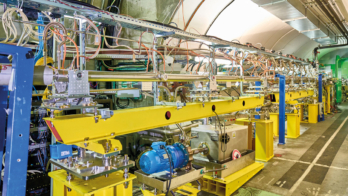
On 1 April more than 90 delegates gathered at CERN to discuss perspectives on superconducting magnet technology. The workshop marked the completion of phase 1 of the Future Superconducting Magnet Technology (FuSuMaTech) Initiative, launched in October 2017.
FuSuMaTech is a Horizon 2020 Future Emerging Technologies project co-funded by the European Commission, with the support of industrial partners ASG, Oxford Instruments, TESLA, SIGMAPHI, ELLYT Energy and BILFINGER, and academia partners CERN, CEA, STFC, KIT, PSI and CNRS. It aims to strengthen the field of superconductivity for projects such as the High-Luminosity LHC and Future Circular Collider, while demonstrating the benefits of this investment to society at large.
“The need to develop higher performing magnets for future accelerators is certain, and cooperation will be essential,” said Han Dols of CERN’s knowledge transfer group. “The workshop helps reiterate common areas of interest between academia and industry, and how they might benefit from each other’s know-how. And just as importantly,” continued Dols, “FuSuMaTech is seeking to demonstrate the benefits of this investment by setting up demonstrator projects.”
The successful preparation of 10 project proposals for both R&D actions and industrial applications is one of the main achievements of FuSuMaTech Phase-1, noted project coordinator Antoine Dael. These projects include new designs for MRI gradient coils, the design of 14 and 16 T MRI magnets, and a conceptual design for new mammography magnets. New developments are also included in the proposals, with the design for a hybrid low–high temperature superconductor magnet, an e-infrastructure to collect material properties and a pulsed-heat-pipe cooling system.
In phase 2 of FuSuMaTech, launched with the signing of a declaration of intention between the FuSuMaTech partners on April 1, the 10 project proposals prepared during phase 1 will evolve into independent projects and make use of other European Union programmes. “We were really impressed with the interest we got from organisations outside of the project,” said Dael. “We currently have six industrial partners, two more have already contacted us today, and we expect others.”





